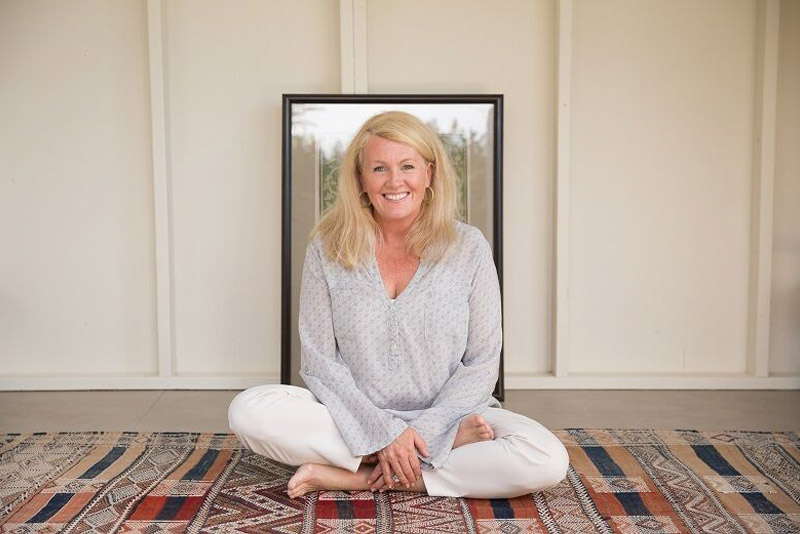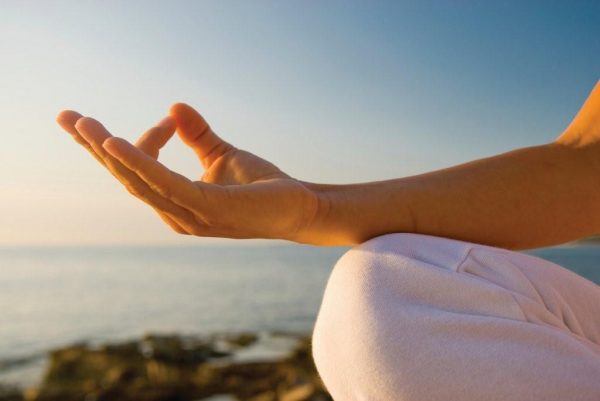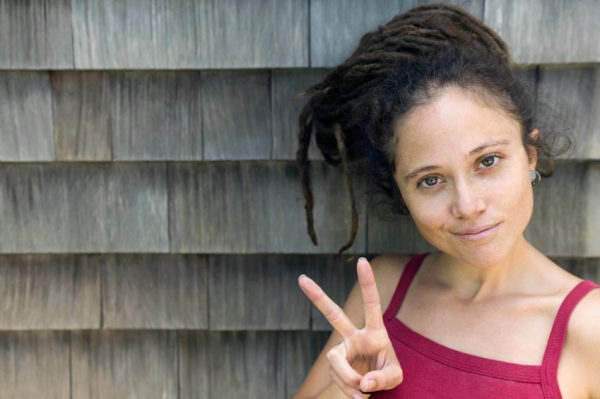Meditation – the Path to Peacemaking

Meditation – the Path to Peacemaking
“Creating peace on earth is not usually the reason most people learn to meditate. Yet, solutions to the world’s strife are on the mind of every person I meet.”
Dr. Deepak Chopra said that there are 35 wars going on right now. He could be right. But what can you or I do to stop the bloodshed? History has shown us that it’s not possible to legislate against conflict. Perhaps this is because wars are first fought in the minds of humans – and it is nearly impossible to change someone’s mind – never mind enacting legislation to change the way someone thinks.
“Wars are first fought in the minds of humans.”
Thoughts such as, “things should be different than they are,” “this person should act a different way,” “they shouldn’t have done that,” “those people should believe what we believe,” or “their natural resources should be shared with us,” are the seeds of disagreement that can grow into, in extreme circumstances, war or some other calamity.
I have spent many hours trying to change people’s minds. Not only have I worked within the mind/body health field to encourage complementary medicine, I’ve lobbied for legislation to protect National Forests, conserve water, encourage commercial recycling, educate people about green building and alternative energy, and promote humane treatment of animals. And yes, even if I have the best proof, the most passion, and research to back up my position, I sometimes have found myself arguing with those who don’t agree with me. Unfortunately, disagreements do not usually create peace, and they rarely net the results I am looking for.
“Instead of being at war with what is, it’s possible to have peace by practicing acceptance of the way things are.”
This doesn’t mean you have to roll over and give up your heartfelt convictions, but it simply means you can be more peaceful while advocating change. Most people have heard Einstein’s assertion that goes something like this: You can’t solve a problem with the same thinking that created it. War doesn’t work. That’s why I always come back to the power of meditating. It creates different thinking…. literally. Through meditation, a shift naturally occurs. Instead of being at war with what is, with meditation, you can more easily experience a sense of peace with the way things are.
“Meditation allows for a shift in mindset: one that shifts from resistance to another’s point of view or the way things are, to a mindset and attitude of acceptance.”
This state of mind invites a ripple effect – when one person embodies peace, it naturally influences others around them. This might sound far-fetched, but I can assure you that I have heard many stories of this being true.
As long ago as 1974, studies have shown that when the proportion of people in any community practicing a transcendental form of meditation, silently repeating a mantra such as with the Primordial Sound or Transcendental Meditation techniques, reaches a particular threshold (about 1% of the population), changes start to occur in social trends. Crime, road accidents, and hospital admissions decrease.
“It may seem surprising that a few people meditating can, by the effect of their practice, influence the behavior of others in the environment, but it does make sense that when a field is influenced.”
In physics and social theory, a small, coherent change within a larger field can lead to widespread transformation. Known as the tipping point or coherence effect, this principle suggests that when just 1% of a system begins to behave in an aligned way—like waves synchronizing in frequency—it can influence the whole system.
This ripple effect, or “collective consciousness,” suggests that the peace one person cultivates can extend beyond them.
In social settings, this might mean that a small group practicing peace or mindfulness could have a positive impact on the surrounding community, resonating outward to foster broader harmony. Just as two nearby loudspeakers emitting the same sound create a powerful effect—producing a volume equal to four loudspeakers (the square of the number of speakers)—the collective energy from a group of meditators is amplified.
When individuals meditate together in a group, the power of their combined brainwaves grows exponentially. So, if four people meditate together, they could potentially affect 16 people in their surroundings. Research confirms that even relatively small groups can have an enormous impact on their environment and, ultimately, on society. This research gives great hope to those who envision a better quality of life for humankind.
“Meditation creates a lasting sense of inner peace – one that doesn’t require conflict, drama, or winners and losers.”
Perhaps the reason meditation as a means to peace hasn’t garnered much media attention is because it’s simple to adopt, there’s nothing to buy, and little money to be made from it. It is accessible to anyone and has the power to create real, lasting peace—within and around us.
Here is a simple formula to increase peace in your life and in your environment:
- Learn to meditate and meditate every day for at least 20 minutes.
- Meditate with a group whenever possible.
- Ask yourself questions like: Who am I? What is my heart’s desire? What is my purpose in life? And listen to any response that arises.
- Speak your truth sweetly. Listen without being defensive.
- Live in integrity. Walk your talk.
- Don’t take anything personally, especially someone else’s opinion of you or the world.
- Keep your attention rooted in the present moment, this is where peace, connection, and love are experienced.
Of course, there’s so many more ways to live peacefully, but this is a good start!
Sarah McLean
Sarah McLean is an acclaimed teacher and thought leader who is determined to create more peace on this planet by helping people wake up to the wonder and beauty of their lives and the world around them through the practices of meditation and mindfulness. She inspires audiences everywhere blending the spirit of Zen wisdom with Vedic knowledge and self-inquiry. She helps demystify meditation and makes it accessible to anyone. It was over 30 years ago when she began her daily meditation practice, and moved in to a Transcendental Meditation community. There, she received advanced training in meditation and studied Ayurveda. Since 1993, when she became the education director for Deepak Chopra’s Center for Mind Body Health, she's been teaching contemplative practices and mind/body health. In 1997, she went to India to live in a traditional ashram in India, When she returned to the States, spent two years as a resident trainee in a Zen Buddhist monastery. She fell in love with Self-inquiry and served as the director of Byron Katie's School for the Work. In 2012, she founded the McLean Meditation Institute, home of the Meditation Teacher Academy which certifies meditation and mindfulness teachers through its 300-hour teacher training program. Her bestseller, Soul-Centered: Transform Your Life in 8 Weeks with Meditation, and her most recent book, The Power of Attention: Awakening to Love have received rave reviews. She now lives in Santa Barbara, California where she trains meditation teachers and offers online classes and lives a life she loves.






